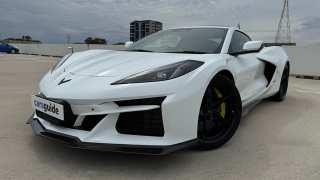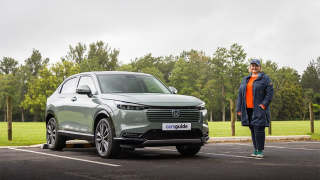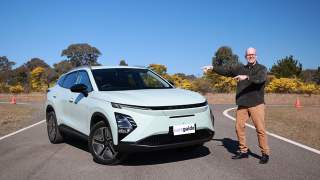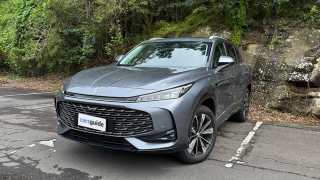This global financial crisis thing is half in the mind, asserts Audi Australia managing director Joerg Hofmann, who has vowed to increase the resurgent marque’s market share in 2009 at the expense of BMW and Mercedes-Benz.
Hofmann’s bullish forecast follows a year of record Audi sales here and abroad. Indeed, despite the prevailing doom, the four ring brand is riding high on several consecutive years of 30 per cent local growth here in its fastest growing market.
“We will certainly grow market share,” Hofmann told Carsguide. “It will be strong growth. We will be better than the market.
“Whatever happens we will be better than the rest of our competitors. We have clearly left Lexus behind. We are getting closer to the other two Germans and we will be closer still this year.
“We are already clear leaders in some segments, the A3 Sportback, the TT and the new A4 grew by 60 per cent in its segment. Volume is one thing, but it is all about profitable growth.”
While refusing to speculate as to outright 2009 numbers, they are most likely to be down on last year’s record 9410. But with orders steady so far this month, Hofmann is adamant that the next new model of Audi’s protracted roll out – the vital Q5 medium SUV is due for local release shortly – will make the rivals hurt.
“I tell you if we get enough production of the Q5, we will be the segment leader and once we have enough production we will overtake the competition. We will easily sell around 1000 Q5s. Whatever we can get we will sell.”
At a time when the prevailing wisdom about the auto industry is about as upbeat as a funeral march, Hofmann’s confidence seems remarkable. Yet, to his mind, it is entirely logical.
Having revived the brand from the sickly also-ran status in the prestige car stakes – fewer than 4000 annual sales when he assumed control in 2005 – Hofmann is emphatic that Audi will achieve its stated objective of 1.5 million annual sales by 2015. Here in its model microcosm of a market, it will shift at least 15,000.
By next year Audi’s total investment in new and upgraded Australian facilities – including a new eight-storey headquarters near Sydney airport, which opens in August – will exceed $170 million.
“Australia is certainly in a better position than many other countries,” Hofmann says. “The Roy Morgan Consumer Confidence Index shows the best consumer attitude for eight months. It’s not so bad.
“I have just returned from Germany where private consumption was booming. We had the best Christmas for the last 20 years. Officially it is in recession, but this is an academic argument based on consecutive quantitive declines in GDP. People are still buying stuff. The economy is at least 50 per cent is psychology.
“We have a long term plan. A crisis may change your day to day approached but it doesn’t change your strategy. By 2015 we will be Australia’s number one premium brand.”
Despite the universally derided increase in the Luxury Car Tax to 33 per cent on vehicles priced at more than $57,000, Audi have been spared the worst effects of what is ever more obviously an ill-timed and possibly income negative tax. The last minute senate deal to exempt diesels priced under $75,000 has benefited Audi’s increasingly diesel line-up, while the best of the A4 petrol line-up – the 1.8 TFSI – is priced under the LCT.
With a youngish average buyer age – 43 – it could be argued that Audi will not trouble Mercedes-Benz’s considerably older core constituency for some time. But fellow Bavarian brand BMW – whose rivalry with the Ingolstadt marque makes that between Ford and Holden seem almost civilised – is defiant as to what it sees as an in the executive car wars.
“It’s only natural that others want a piece of the pie,” BMW Australia’s Toni Andreevski says. “But the fact is that we continue to reduce fuel consumption, provide the best driving experience and have the highest resale values.
“Cars that are cheaper to buy are not necessarily the cheapest to run in the longer terms. We didn’t have a single diesel vehicle five years ago, now they are among our best sellers.
“The Mini Cooper diesel will be the lowest emission car in the country.”















Comments